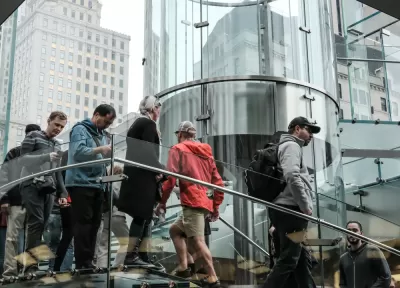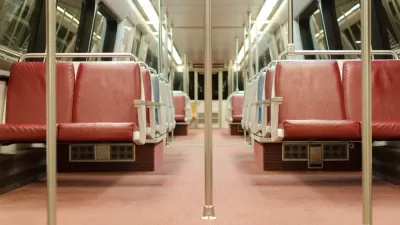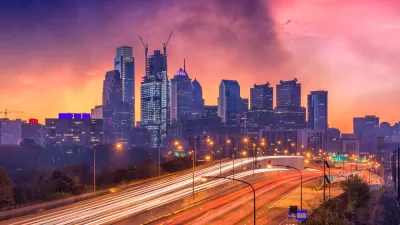How people get to work, and the geographic distinctions between trends in those choices, reveals some of the country's more ominous traits, including the trend Richard Florida calls "the new urban crisis."

Richard Florida digs deeper into data recently released by the American Community Survey to make the case that how people move around cities is a key feature of the country's "deepening economic and political fissures."
The post includes maps that reveal where Americans get to work by car, public transit, biking, walking, and carpooling. Florida also digs into factors of mode choice like size and density of location, educational attainment, economic class, weather, and more.
As for what it all means, Florida says the country's political cleavages follow the same lines as the mode choices commuter make around the country. And then theirs is the deepening economic and social inequality Florida has dubbed the "new urban crisis":
Our commuting patterns are associated with key dimensions of what I dub the new urban crisis. Housing is less affordable, inequality greater, and economic segregation higher in places where commuters are less dependent on the car. Median housing costs are positively and significantly associated with transit (0.59), biking (0.48), carpooling (0.49), and walking (0.38) to work, and so are income inequality and economic segregation. These associations again reflect the fact that denser, more affluent, educated metros are more expensive, more unequal, and more segregated.
FULL STORY: The Great Divide in How Americans Commute to Work

Planetizen Federal Action Tracker
A weekly monitor of how Trump’s orders and actions are impacting planners and planning in America.

Congressman Proposes Bill to Rename DC Metro “Trump Train”
The Make Autorail Great Again Act would withhold federal funding to the system until the Washington Metropolitan Area Transit Authority (WMATA), rebrands as the Washington Metropolitan Authority for Greater Access (WMAGA).

The Simple Legislative Tool Transforming Vacant Downtowns
In California, Michigan and Georgia, an easy win is bringing dollars — and delight — back to city centers.

The States Losing Rural Delivery Rooms at an Alarming Pace
In some states, as few as 9% of rural hospitals still deliver babies. As a result, rising pre-term births, no adequate pre-term care and "harrowing" close calls are a growing reality.

The Small South Asian Republic Going all in on EVs
Thanks to one simple policy change less than five years ago, 65% of new cars in this Himalayan country are now electric.

DC Backpedals on Bike Lane Protection, Swaps Barriers for Paint
Citing aesthetic concerns, the city is removing the concrete barriers and flexposts that once separated Arizona Avenue cyclists from motor vehicles.
Urban Design for Planners 1: Software Tools
This six-course series explores essential urban design concepts using open source software and equips planners with the tools they need to participate fully in the urban design process.
Planning for Universal Design
Learn the tools for implementing Universal Design in planning regulations.
Smith Gee Studio
City of Charlotte
City of Camden Redevelopment Agency
City of Astoria
Transportation Research & Education Center (TREC) at Portland State University
US High Speed Rail Association
City of Camden Redevelopment Agency
Municipality of Princeton (NJ)





























